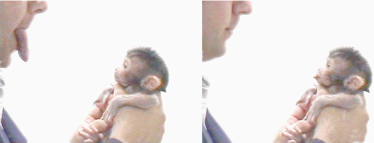What is the purpose of this study?
 |
Researchers at the University of Washington Autism Center want to better understand brain functioning and cognitive profiles in individuals with autism spectrum disorders and typical development. This study will investigate how the brain processes social information in individuals with and without autism. |
How can I participate? What are the criteria?
This study involves an assessment of children on the autistic spectrum as well as typically developing children between the ages of 8 to 16. Participation generally involves one 2-3 hour visit to the UW, one or two shorts phone calls, and a few short parent questionnaires. Appointments are available during weekdays and on evenings and weekends. All families who participate will receive a small payment for their time. Feedback reports are also available upon request.
Whom should I contact to get involved?
Recruitment is closed at this time.
Background Information
Mirror neurons are nerve cells that are activated when an individual observes an action being performed by someone else. These neurons are believed to be involved in cognitive abilities such as empathy and learning by imitation — skills that are often impaired in people with autism. We are exploring a potential link between mirror neuron dysfunction and autism.
The study plans to use electroencephalography to detect electrical activity associated with activated mirror neurons in the children while they observe and attempt to imitate a task.
Research has suggested that mirror neurons only fire when an individual observes an action with which he or she has experience, leading us to hypothesize that the dysfunction of mirror neurons in individuals with autism is caused by a lack of experience with social interaction. A link between mirror neuron dysfunction and autism would help elucidate how the disorder develops, and might provide a basis for early detection and intervention.
